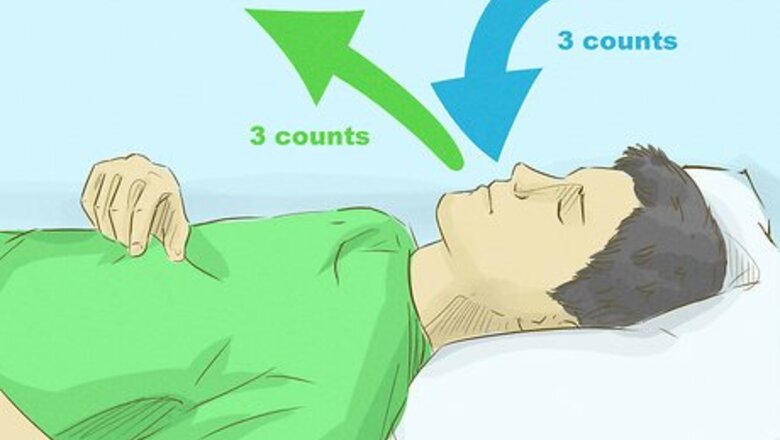
views
Looking for Immediate Solutions
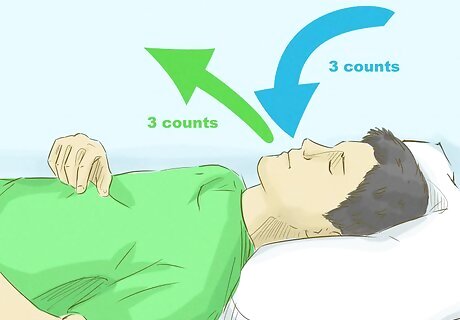
Practice breathing techniques that promote relaxation. Breathing deeply is a simple, quick way to calm your body and soothe anxiety. Inhale deeply through your nose an exhale through your mouth.
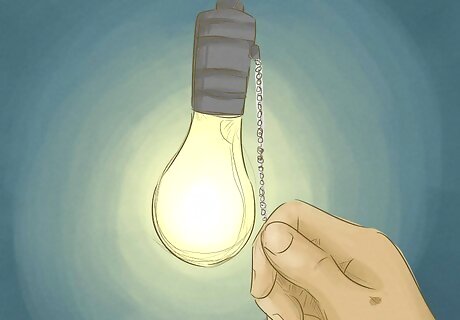
Make the room as dark as possible. Pick a good sleeping position. Light suppresses the production of melatonin, a hormone your brain secretes to make you sleepy. Eliminating as much light as possible can boost melatonin production and help you get to sleep. Draw your blinds or curtains to block out any street lights. If it's still too bright you can wear a sleep mask (or even drape a t-shirt over your eyes if you don't have one).
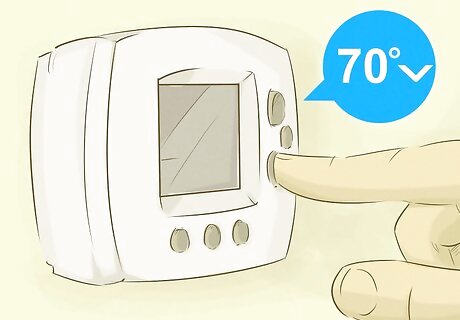
Keep the room cool, between 16-19° C (60-67° F). Just like animals going into hibernation, our body temperature lowers as we fall asleep. A cool environment can help ease your body into a state that is optimal for slumber. If you have control of your thermostat, make sure you adjust the temperature at night to a comfortable, cool setting. If you don't have air conditioning, or if you share a house or apartment and can't adjust the temperature of your room, try cracking a window or using fans to lower the temperature if it's too hot. If it's too cold you can use a hot water bottle, heating pad, or an extra blanket to warm things up.
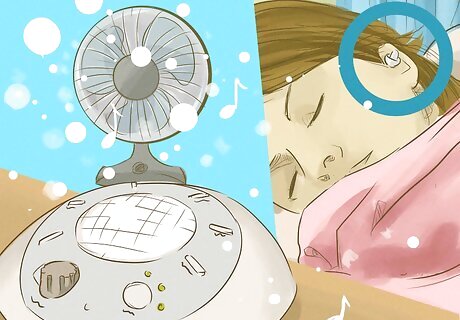
Eliminate sound pollution. Traffic, rowdy neighbors, snoring partners and barking dogs are just a few of the things outside of your control that may keep you awake. Combat distracting sounds by blocking them out with earplugs or drowning them out with another, more calming sound. Turn on a fan, turn on a sound machine, or tune your radio between stations to create white noise, a steady, monotonous sound that can effectively mask the noises that stimulate our brains and disturb our sleep. If you don't have a fan or sound machine, there are many phone apps you can download with sounds like waterfalls, thunderstorms, or ocean waves to lull you to sleep.
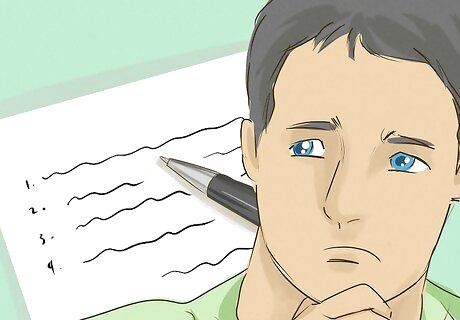
Write down anything that is bothering you. If you find you are having obsessive, circular, or anxious thoughts, try getting them down on paper.
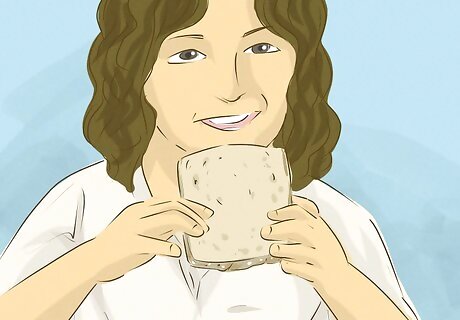
Eat a small snack, like a slice of bread. Eating before bed can affect people in different ways, but if you find yourself kept awake by gnawing hunger, it's probably better to have a snack. Foods containing carbohydrates and tryptophan, such as whole grain bread, turkey, and bananas, can help make you sleepy. Stick to mild foods. Spicy, acidic foods can cause indigestion. Fatty, rich foods take longer to break down, and the work your body must do to digest them could prevent sleep. Stay away from sweets with sugar or caffeine will stimulate your body and keep you awake.
Finding Long Term Solutions
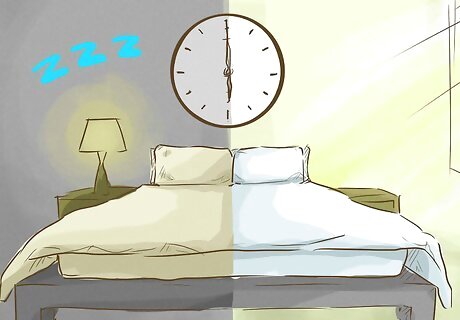
Set a sleep schedule and stick to it. By keeping to a routine bedtime, you are effectively training your body and avoiding nights spent tossing and turning. Go to sleep at the same time every night. Aim for a time when you naturally start getting tired. Wake up at the same time every day. While it's tempting to get a few more hours of shut-eye on the weekends, this will throw off your sleep schedule and you may have difficulty falling asleep at the right time.
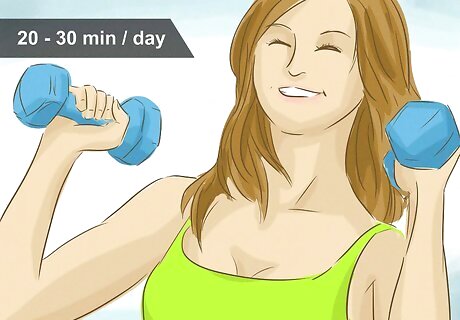
Exercise regularly. You only need 20-30 minutes total of exercise each day to see a change in your sleep habits. While vigorous exercise is best, anything that gets you on your feet and moving is a great start. Choose an appropriate time to exercise. If you go for a run right before bed, chances are you'll be too wired to sleep. Give yourself a few hours to wind down before trying to sleep. If you're short on time, try breaking up your exercise throughout the day. Even choosing to take the stairs over an elevator can give you a quick workout.
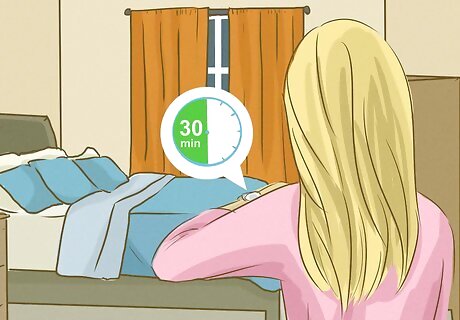
Use your bed for sleep or sex only. While it's comfortable and fun to hang out on your bed and watch movies on your laptop, the action can confuse your body. You want to train your body to get into sleep mode as soon as you climb into bed. If you want to do a relaxing activity before bed, such as reading or knitting, try going into another room with soft light.
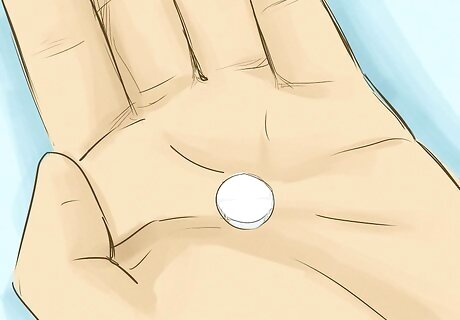
Try taking an over the counter medicine like Advil pm, or unisom.

Try a herbal remedy like Valerian root or melatonin.
Understanding Things to Avoid
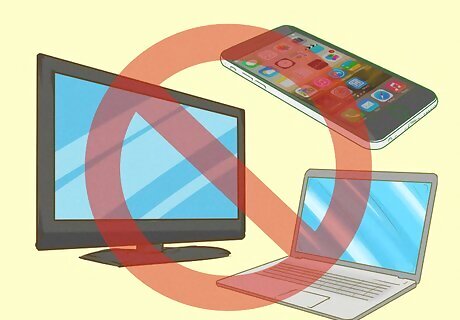
Avoid bright light, especially from television, computer, and phone screens. It seems like a natural solution--you're trying to unwind so you flip on the TV, or your phone is charging on your bedside table so you take a last peek to see if there's anything new on social media. The light will stimulate your brain and disrupt the process of quieting down for sleep. Use an alarm clock instead of your phone to wake you up in the morning, and keep your phone out of reach. Keep the TV and computer in another room, not your bedroom.

Quit caffeine after 2pm. The effects of caffeine can extend for hours after consumption. So enjoy your morning coffee, but try to leave it at that. Try drinking milk or decaffeinated tea in the afternoon and evening instead of coffee or soda.
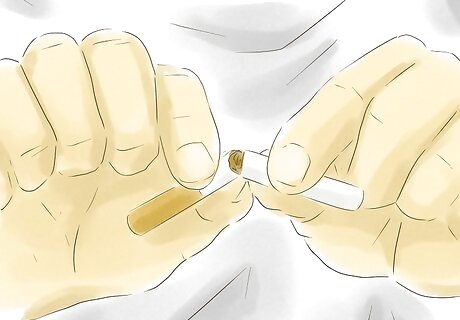
Quit smoking. Not only does nicotine act as a stimulant and keep you awake, you may begin experiencing powerful, disruptive withdrawal symptoms as you sleep.



















Comments
0 comment